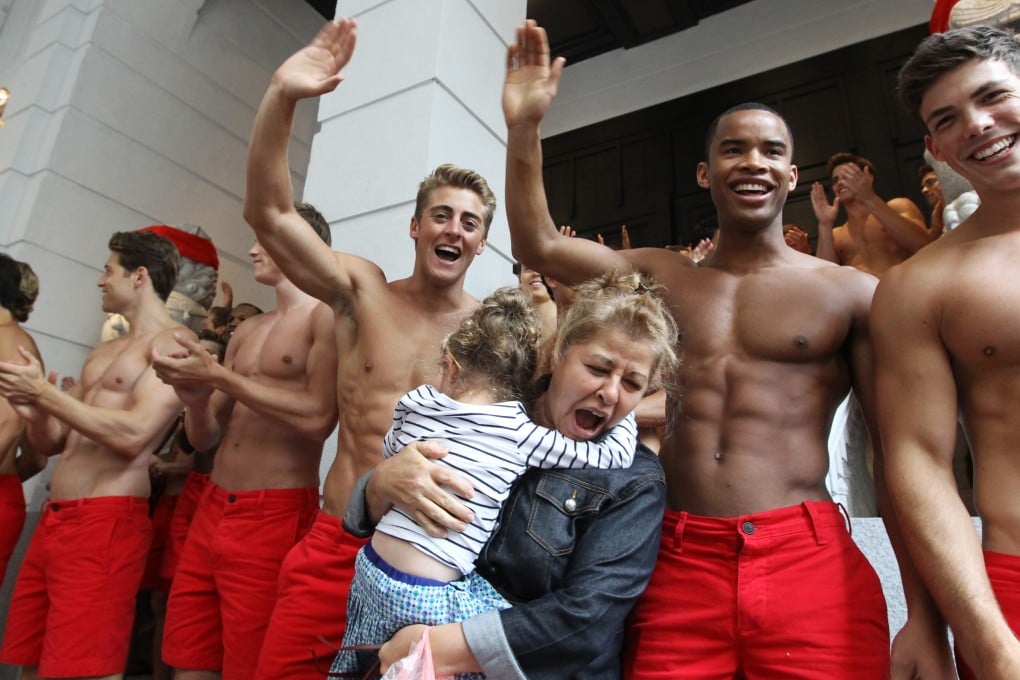Advertisement
Remember Abercrombie & Fitch’s topless models? Netflix documentary reflects on the brand’s bad old days, from its hiring to a racist T-shirt
- In the late ’90s and early ’00s, Abercrombie & Fitch was a popular choice for ‘cool kids’ before it came under fire for its marketing and hiring policies
- A Netflix documentary explores its pop-culture reign and how it thrived on exclusion – ‘We want to market to cool, good-looking people’, said its former CEO
3-MIN READ3-MIN

In August 2012, Abercrombie & Fitch opened its flagship store in Hong Kong’s Central district to much flesh-fuelled fanfare.
The US lifestyle brand had imported 110 “Hot Guys” from its stores across the world to mark the opening, its first in China.
The mostly white models, clad in red shorts, rode shirtless through the city on open-top branded trams and drew crowds – mostly young girls – to Abercrombie & Fitch’s Pedder Street store, now closed, where the air was thick with the brand’s sickly sweet signature scent, Fierce.
Advertisement
The scenes reflected everything the brand stood for at that time – and everything that led to its legal battles involving racist and sexist advertising campaigns, and discriminatory marketing and recruiting policies.
Netflix’s White Hot: The Rise & Fall of Abercrombie & Fitch is a documentary directed by Alison Klayman, the American filmmaker best known for the 2012 film Ai Weiwei: Never Sorry, about the Chinese artist and activist.
Advertisement
Advertisement
Select Voice
Select Speed
1.00x